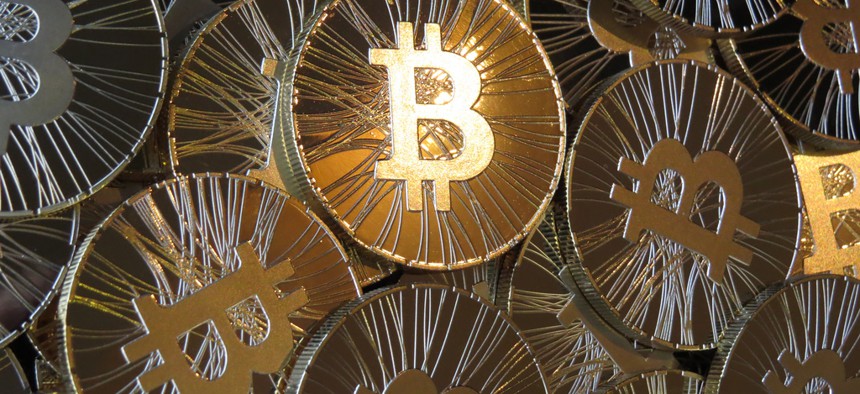Obama Ricin Letter Suspect Linked to Bitcoin Drug Bazaar

antanacoins/Shutterstock.com
The alleged would-be poisoner was a vendor on Silk Road, a black market eBay that only accepted the virtual cash.
A former seller on the now-shuttered Silk Road website, a black market eBay that only accepted bitcoin, is one of the suspects accused of mailing President Obama poison-laced letters this year, according to Homeland Security Department officials.
The revelation came in response to a Senate committee’s request for information on the risks and benefits of the unregulated virtual currency. Bitcoin, which can be exchanged for real products and services or traditional money, is transferred through a peer-to-peer network almost anonymously.
For this reason, DHS officials say Silk Road facilitated the trafficking of, among other things, narcotics, biological agents, and fake passports.
After busting up the operation earlier this fall, U.S. authorities say they continue to probe the site's annual revenue stream of more than $250 million and its hundreds of thousands of users.
"Of recent noteworthy interest was the determination that the suspect who had sent Ricin to President Obama earlier this year was a vendor on the Silk Road site,” Brian de Vallance, DHS acting assistant secretary for legislative affairs, wrote in a Nov. 12 letter to lawmakers.
The Senate Homeland Security and Governmental Affairs Committee this summer had inquired with several agencies that monitor financial transactions, including the FBI and Treasury Department.
The letter did not name the suspect or identify what the individual was peddling. In separate incidents, two people have been indicted for sending Obama the toxin this year. James Everett Dutschke, charged in April, is scheduled for trial on unrelated fondling charges this month, the Associated Press reported on Oct. 25. Dutschke, a former Tupelo, Miss. martial arts instructor, originally had framed an Elvis impersonator for the ricin crime.
Shannon Richardson, alleged to have sent poisonous letters in May, has been deemed a “flight risk” and must remain in jail pending trial, CNN reported in September. Richardson, an actress who had minor roles in TV’s "The Walking Dead" and "The Vampire Diaries,” also initially pinned the blame on someone else: her husband.
The Senate committee released the DHS letter Friday evening, ahead of a hearing planned for Monday afternoon on the implications of virtual currencies for agencies and citizens. Among the witnesses slated to testify are U.S. authorities and financial regulators, as well as officials from the International Centre for Missing & Exploited Children and members of the bitcoin community, including Circle Internet Financial and Bitcoin Foundation.
Bitcoin has the potential to become a common world currency, say advocates and at least one Federal Reserve official.
"It represents a remarkable conceptual and technical achievement, which may well be used by existing financial institutions (which could issue their own bitcoins) or even by governments themselves," François R. Velde, a senior economist at the Federal Reserve Bank of Chicago, stated in a primer on the currency issued earlier this month.
Some digital cash backers say the “censorship-resistant” money bolsters Internet freedom, as well as the free market.
Bitcoin “allows oppressed individuals to transact even when governments regulate traditional payments processors, and that's a good thing,” Jerry Brito, a researcher at George Mason University's Mercatus Center, wrote in American Banker.
Consider a nongovernmental organization “that wants to fund human rights groups fighting for gay rights in Russia. Without a facility like Bitcoin, it might be impossible to electronically transfer money for good causes,” added Brito, who is expected to testify on Monday.
Having no third-party intermediary, the system can lower transaction costs – but also mask money laundering. Velde said he anticipates the currency is unlikely to remain free of government intervention, "if only because the governance of the bitcoin code and network is opaque and vulnerable.”
![]()
NEXT STORY: Managing the Message in the Middle East






